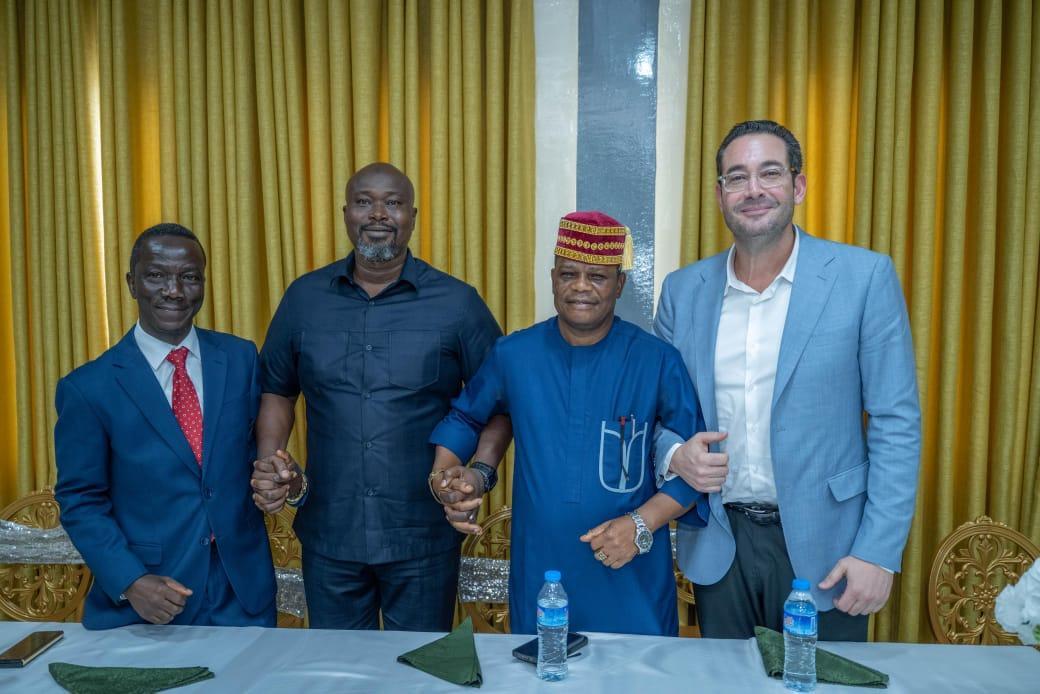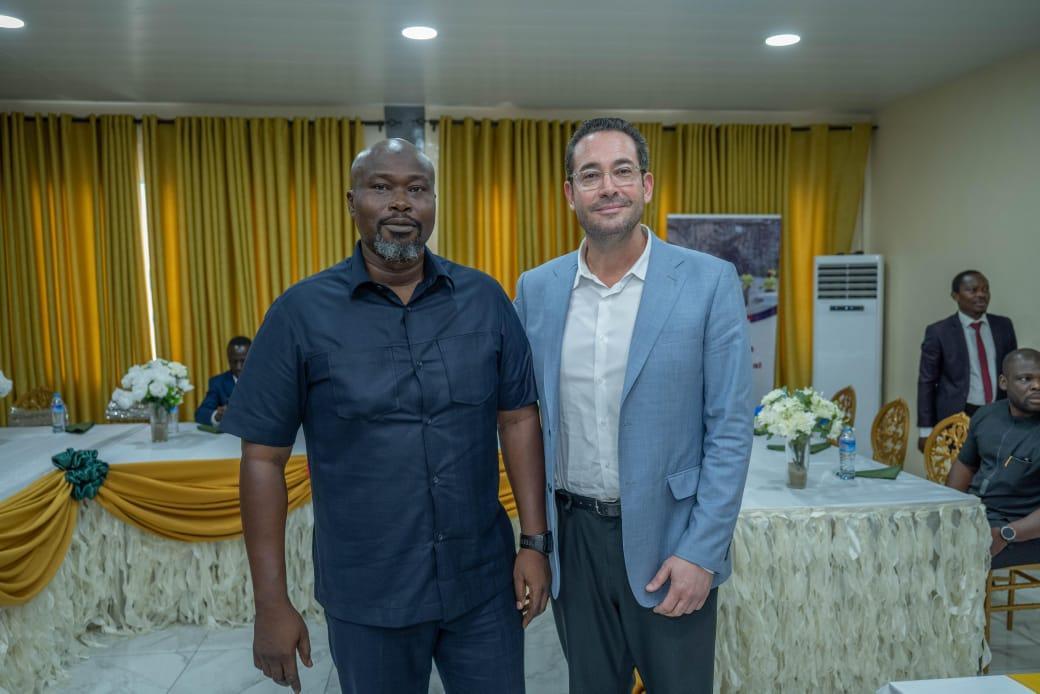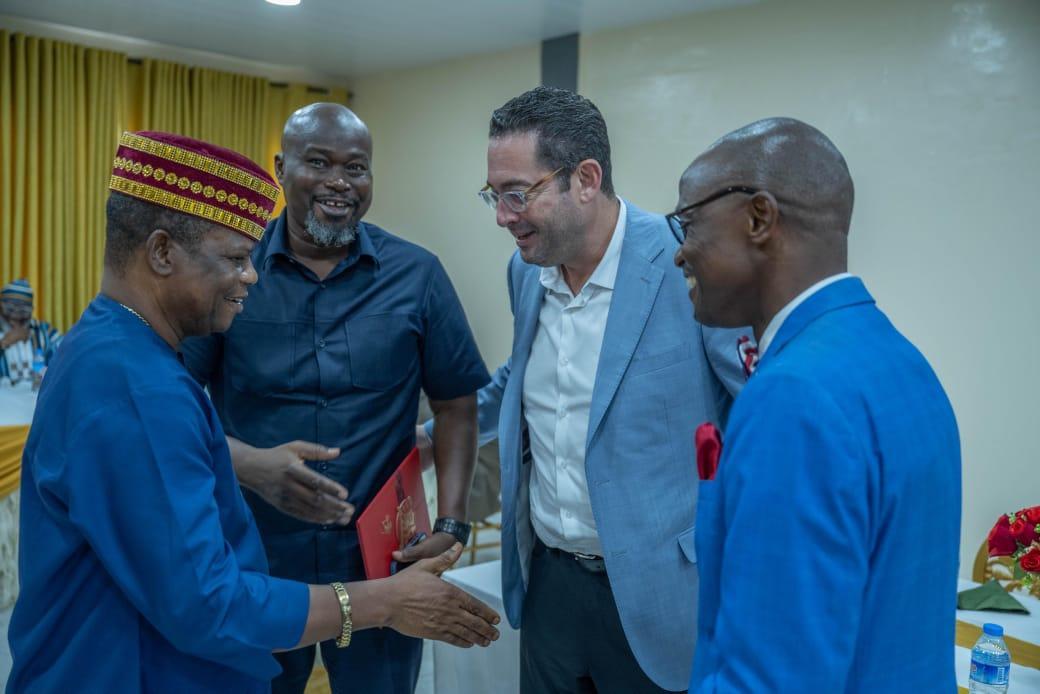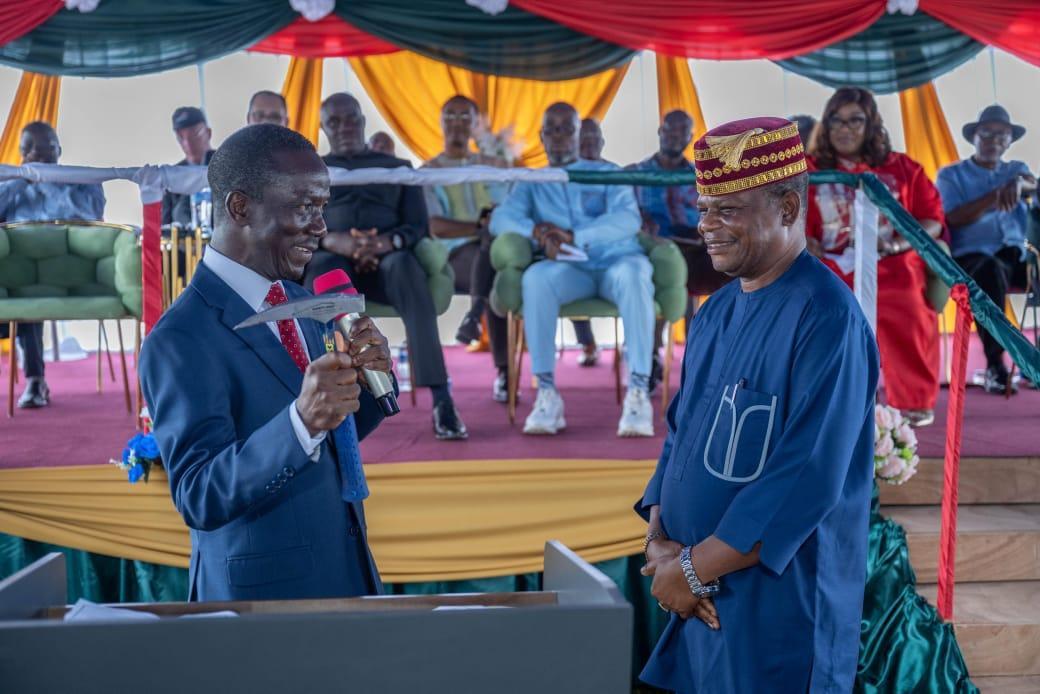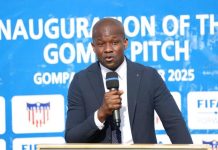Africa-Press – Liberia. The Ministry of Mines and Energy in Monrovia became the center of national attention as government officials, industry leaders, foreign partners and representatives of mining communities gathered for an important turning over ceremony that marked a decisive shift in the stewardship of Liberia’s mineral and energy sectors.
The event unfolded in an atmosphere defined by gratitude for past efforts, sober reflection on challenges encountered, and firm anticipation of the opportunities that lie ahead.
Honorable Amara KAMARA President of the Liberia Chamber of Mines, extended warm appreciation on behalf of the Liberia Chamber mines.
He reminded the audience that the ceremony represented more than a change in leadership, describing it instead as a reaffirmation of collective duty to strengthen a sector that remains essential to Liberia’s economic resilience. Kamara acknowledged the leadership of outgoing Minister Wilmot Paye whose stewardship coincided with a period of long running institutional challenges.
He praised Paye for navigating these complexities with steady engagement, for promoting dialogue, and for advancing reforms that pushed the Ministry toward greater accountability and modernization even though a number of policy and regulatory processes still await completion.
According to Kamara, the sector is now positioned upon a stronger foundation because of the work initiated during Paye’s tenure.
Kamara then directed his remarks toward the incoming Minister, Honorable R Matenokay Tingban, and welcomed him together with his deputies and assistant ministers. He described the new leadership as arriving at a moment of significant national opportunity, citing the country’s potential in gold, iron ore, critical minerals, renewable energy and the long standing national objective of achieving greater value addition.
He reaffirmed the Chamber’s full commitment to collaboration with the Ministry as Liberia seeks to enhance regulatory clarity, strengthen investor confidence, promote responsible mining, expand community participation, attract new investments and ensure that the country’s natural wealth genuinely contributes to broad based national development.
Kamara pledged the Chamber’s continued support as the sector pushes toward becoming globally competitive and socially impactful.
Outgoing Minister Wilmot Paye then delivered a detailed and introspective account of his twenty months in office, beginning with heartfelt gratitude to God and the President of Liberia for providing him the opportunity to lead two of the nation’s most consequential sectors.
Paye recalled his initial involvement in the Joint Presidential Transition Team where he led the Energy and Petroleum Cluster Working Group that assessed the structural and operational conditions of the sector prior to the inauguration of the new administration.
The findings of that assessment, he said, revealed an alarming state of decay that included derelict Ministry infrastructure with no electricity or internet services, lack of basic office supplies, serious deficiencies in technical expertise across engineering and geosciences, and an over reliance on volunteers in the inspectorate division which the assessment described as a major risk to the mineral sector.
Paye noted that licensing, one of the Ministry’s core regulatory functions, had been handled outside the institution, policy instruments were outdated, regulatory duties were fragmented across agencies, and underground mining had no regulatory framework.
Geological and hydrological data were outdated, production records for precious minerals did not exist, and the broader electricity sector struggled with weakened hydropower infrastructure, mounting import bills, high system losses, frequent load shedding and poor institutional coordination. The petroleum sector faced similar stagnation with outdated seismic data, no active oil exploration, and a refinery burdened with increased employment and diminishing storage capacity.
He contrasted this bleak picture with what he described as measurable and encouraging progress twenty months later. According to Paye, the Ministry now leads two active sector working groups and has overseen a period of growing stability in electricity supply, declining dry season load shedding, expansion of electricity access to several regions, restoration of statutory structures, initiation of solar power projects, and the return of international oil companies.
Government institutions have begun transitioning to prepaid metering and feasibility studies have identified new hydroelectric sites. In the mineral sector, he highlighted the acquisition of new geological data through a China sponsored mineral survey, the establishment of county mine offices staffed with qualified geologists and engineers, the submission of proposed amendments to the mining law, and the development of an executive order for a national minerals company that would manage government equity and spearhead mineral commercialization.
He added that a new fee structure now expands revenue sources and supports a more modern regulatory framework. Paye closed his remarks by expressing sincere appreciation to Ministry employees, development partners and the Liberian people for their cooperation, stating his confidence that the progress achieved will continue and expand under the new leadership.
The incoming Minister, Honorable R Matenokay Tingban, then took the podium and delivered an induction statement that blended humility with a strong sense of national duty. He described the moment as both an honor and a profound responsibility, noting that the Ministry of Mines and Energy sits at the core of Liberia’s economic transformation.
Tingban recounted his professional journey through multiple roles including mining engineering, geological fieldwork, environmental supervision, directorship at the Ministry, legislative experience as a representative, and service as a national mining expert at regional forums. These experiences, he said, have equipped him with the technical and strategic insight needed to lead a sector that is both complex and central to Liberia’s development.
He outlined the guiding principles of his administration as efficiency, transparency and inclusive growth, emphasizing alignment with the ARREST Agenda for Inclusive Development and the National Development Plan. His stated priority actions include finalizing the new mineral and mining law, modernizing exploration regulations, reviewing the model mineral development agreement, and restructuring mineral development funds for greater accountability. He pledged to reinforce inspection and investigative units to address illicit mining and related disputes, supported by a stronger legal department.
Tingban also highlighted the need for deeper Liberian participation in the sector through full enforcement of laws granting government equity in major mining operations, careful review of proposals to establish a state owned mining company, stronger support for artisanal miners, and collaboration with the Central Bank for a national gold reserve initiative.
He committed to expanding training for geologists, engineers, hydrologists and technical agents while enhancing the mining cadastre information system.
Turning to the energy sector, Tingban stressed that no country can industrialize without reliable power. He pledged close collaboration with the Liberia Electricity Corporation, the rural renewable energy agency, the electricity regulatory authority, private investors and development partners to strengthen regulation, advance renewable energy and help achieve national energy security.
He assured Liberians that the Ministry will operate with integrity and accountability, and that all decisions will prioritize national interest rather than self interest. Tingban called for unity, professionalism and a spirit free of conflict within the Ministry, stating that a collaborative environment is essential for national progress. He ended by affirming his confidence that with God’s guidance and the combined effort of government, civil society, development partners and community leaders, Liberia can build a vibrant mineral and energy sector that drives inclusive growth and national prosperity.
The ceremony concluded with a collective sense of continuity and renewed purpose as the stewardship of the country’s mineral and energy future passed from one administration to the next. Leaders and stakeholders expressed hope that the sector, strengthened by reforms, collaboration and new leadership energy, will continue to evolve into a powerful engine for sustainable development and improved livelihoods for all Liberians.
For More News And Analysis About Liberia Follow Africa-Press

